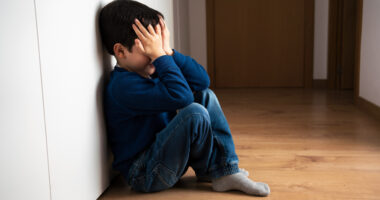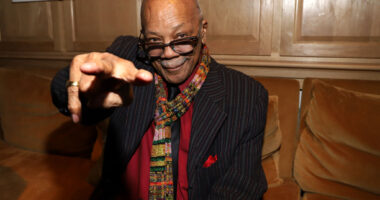Each Father’s Day, I’m filled with gratitude — for my three children, who made me a father and who have put up with me all these years. And now, as adults, we still somehow seem to all like each other. And that’s in spite of what my wife, Carol, and I learned early on. That parenting is a wild experiment full of failures and confusion, as well as arguments and negotiations and standoffs — about driving and dating and sex and drinking and weed and college and jobs and a thousand other worries and challenges. But thankfully, all of that is more than balanced by the raw joy, learning and radical love that parenting, and a family, can offer. Each Father’s Day, I’m also filled with gratitude for my own father. He was a bright, honest and compassionate man and a small-town Iowa minister. He died 11 years ago from Alzheimer’s. Given that June is Alzheimer’s and Brain Awareness Month, as I think about my dad, I’ve also been thinking about all the other families that now must negotiate this grueling disease. Despite ongoing research, there is no cure, and the statistics continue to worsen. Currently about 1 in 9 people age 65 and older have Alzheimer’s. And the number of deaths from the disease doubled between 2000 and 2021. I think Alzheimer’s is so feared because losing your mind and memory would seem to equal losing your life, or the parts of life that most matter: the capacity to talk and argue and love and dream and remember who you are. It is one time in which living in the now is not a virtue but a detriment. People with Alzheimer’s are forever trapped in the present moment and unclear on how they got there and where they’re going. It is heartbreaking to watch a loved one go through this process. This is how I remember my father. On the day he died, he looked as rundown and parched as the tiny Nebraska farm he grew up on during the Depression. Just as the dust storms of his youth had stolen the rich topsoil from their farm, so had the quiet storm of Alzheimer’s swept away his best thoughts and dreams from the landscape of memory. Nothing could grow or take root anymore in the drought of his mind. A week earlier, my two older brothers, Paul and Rob, called and asked me to come to St. Paul, Minnesota, where they live and where Dad was in a care center. It was time for hospice. Paul and Rob had managed the day-to-day slog of Dad’s mental decline for two years — the maze of doctors, caretakers and meds and how to pay for it all. A few months prior, when Dad escaped his room and locked himself outside in his underwear in a snowy parking lot on a freezing January night, they moved him to a memory unit. That was a sad place. All the windows were locked and had alarms, and the entrance door required a code. Without the rudder of memory, my father and the nine residents in his unit all seemed adrift in a tiny boat on a wild, infinite sea — yet unconcerned about finding their way back to shore. Whenever I visited and had dinner with them, I wondered how I appeared to them: a dim light in the distance toward which they might row for a few seconds? And I wondered what I would do, if it were me and if I could still decide. That is, if I couldn’t recognize my family or friends, or remember what and who I loved, would I want to keep living? That is a question many who lose a parent, sibling or friend to Alzheimer’s might ask themselves. It’s one that floats somewhere in the back of my mind as I move through my 60s — along with a few others: Where did I put my glasses or my phone or my car keys? What day is it? What is that person’s name? What time was that appointment? And on and on. Who doesn’t begin to wonder a bit about their memory as they age and their brains slowly diminish? The hard thing with Alzheimer’s, and Parkinson’s and other neurological diseases, is that your dad or mom becomes like a child again, and you must parent them. While this is nothing new — children often take care of their parents in their elder years — the challenge of Alzheimer’s is that a person can live 10 or 15 years after diagnosis. And so finding and affording good care and balancing/managing your own life can be a real challenge. Needless to say, caring for someone with Alzheimer’s requires a great deal of compassion — a word that means “to suffer with.” Unlike caring for children, who are filled with potential and represent the future, Alzheimer’s patients don’t typically offer their caretakers much hope or joy. There are various resources that are helpful, but it is difficult work. Which is why this month, as I think about my dad, I’m also thinking of all of the caretakers who suffer with — who feed, clean and faithfully listen to their parents, siblings or friends in an elder care center or memory unit. Thank you for your daily attempts to shine through the dark clouds of confusion and loss as they continue to gather in the distance. Tom Montgomery Fate is an emeritus professor at the College of DuPage in Glen Ellyn. His most recent book is “The Long Way Home,” a collection of personal essays. Submit a letter, of no more than 400 words, to the editor here or email [email protected].
Subscribe
Login
0 Comments





